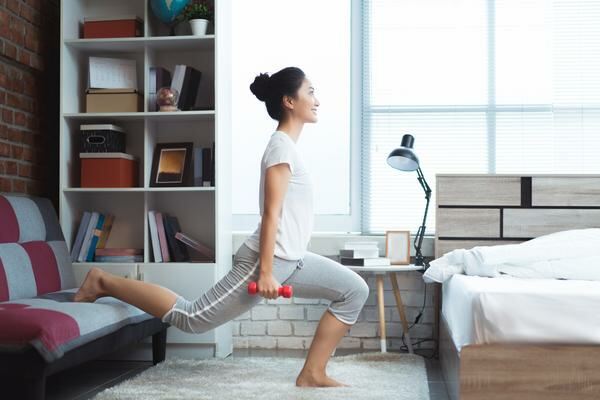Understanding the relationship between our body at its most active and when we rest has a number of benefits. Here we run through some of the ways exercise impacts our sleep.

1. Body temperature
In order to fall asleep it’s essential to keep cool, in fact we tend to switch off when body heat loss and our rate of temperature change is at a maximum. On the flip side, scientists have found that a higher internal body temperature makes us more alert, improves our memory and even reaction times. It’s no wonder then, that exercise, which raises our core body temperature, can delay our sleep.
2. Endorphins and brain activity
When we exercise our body releases endorphins, these hormones affect our pain perception, appetite and even help to make us feel happier. The feel-good neurotransmitters can help tackle depression and insomnia. If that wasn’t enough, exercise sustained over a long term regulates our sleep cycle. By working out in sunlight you can suppress sleep hormones so they’re prepared for a timely release at night.
3. Fatigue
We all know that exercise requires energy and that a vigorous workout can leave us feeling fatigued, tired and ready for bed. It also increases the amount of time we spend in slow wave sleep, a stage in the sleep cycle where the body releases muscle-repairing and fat-burning hormones, even boosting our immune system. Fatigue then, fuels a healthier body.
4. Sleep apnoea
Sleep apnoea is a condition that affects our breathing while we rest, with symptoms including staggered breath, snorting and choking. An American study found that a programme of brisk walks and weight training reduced the severity of these symptoms by 25%. A result that was achieved without a reduction in body weight. This shows that the right exercise can improve our breathing and reduce snoring as we sleep.
5. Better sleep improves exercise

We’ve looked at how exercise affects our sleep but there are some interesting ways that sleep affects our exercise too. We’ve learnt that slow wave sleep releases hormones that aid tissue repair and helps burn fat. The result is a stronger, leaner body built for an improved workout. Sleep is also essential to maintaining our energy levels, being the fuel for our exercise, and power naps can even improve our motor learning skills – including our ability to run, swim and use larger muscles.





